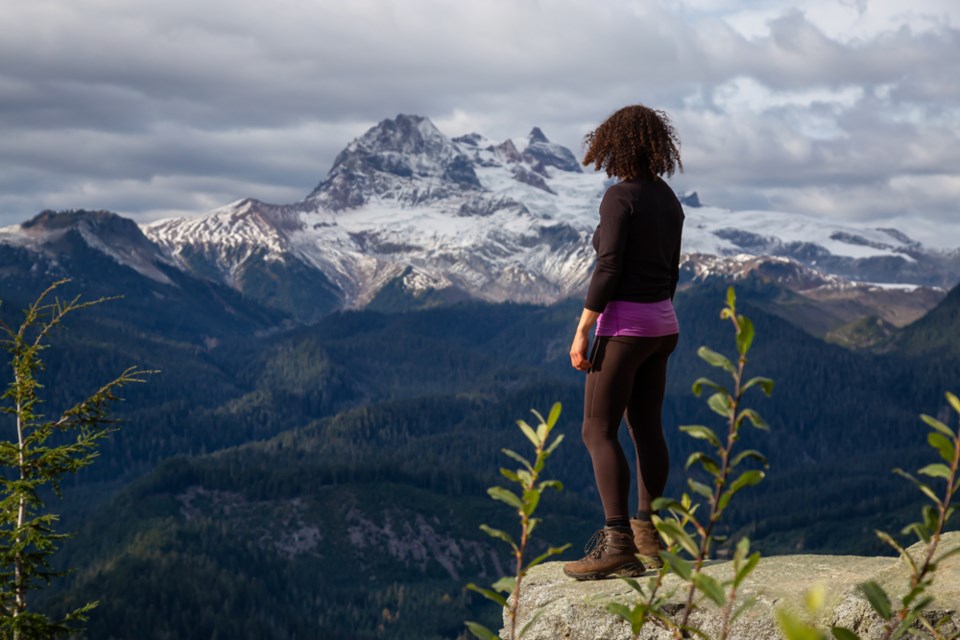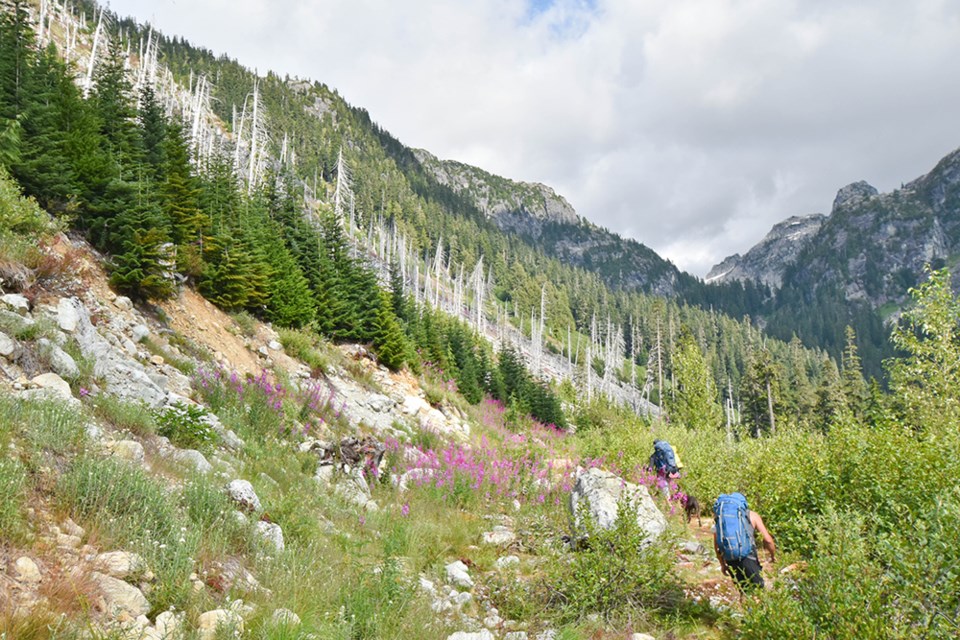Following several calls, Squamish Search and Rescue is urging backcountry adventurers to do their homework before hiking up to Watersprite Lake.
"We understand that it is a popular hike, but I think people need to do their research and understand it is a full-day hike," said rescue manager B.J. Chute.
"Make sure they go prepared with extra clothing, food, water and headlamps. And, given this time of year, the sun is setting earlier, and, so, as well as with the sun being lower, the trails tend to be in the shade and in the cold much longer than they have been."
People need to know what they're getting into, said Chute. It's a full day hike that will be strenuous for the average person.
There were three calls to Watersprite in the last two weeks or so.
The first occurred on Aug. 19 around 1:30 a.m. It was a call for six overdue hikers. Rescuers, however, later learned that the hikers just spent the night in the parking lot, as they didn't want to drive out in the dark.
Another call occurred on Aug. 23, where an exhausted hiker was reporting dehydration and cramps, and said he wasn't in the right condition to hike down from the lake.

However, at that time, crews were responding to a more urgent call of a fallen climber at Alpha Mountain. They told the hiker to camp overnight at the lake. The following day, they lifted him out with a helicopter.
Finally, Aug. 25, crews came to the aid of people in the Watersprite area again. A group of hikers were sitting on a log, which broke and rolled over two people sitting on it.
They were significantly injured. Rescuers long-lined them both out via helicopter and turned them over to paramedics, who brought them to the hospital.
Watersprite was not the only source of calls in the last few weeks.
On Aug. 17, rescuers responded to a call of lost hikers on Slhanay. A woman called crews after she was separated from her husband and son. A search and rescue member who happened to be in the area was able to interview hikers and figure out where the pair went. The pair were then found.
On Aug. 20, around the time a rainstorm hit, three campers found themselves stranded on a sandbar on the Squamish River. They'd driven up to the sandbar and had set up a camp. However, water levels rose and the people were cut off from the land. Rescuers went with a jet boat and helicopter, but by the time crews arrived there, they found that nearby forestry workers were already towing the stranded campers out. Search and rescue stood down.
The following day, another group of campers were stranded at the five-kilometre mark of the Squamish Valley Forest Service Road. With the heavy rains, the water rose, and they called for help. However, they were able to rescue themselves before crews arrived.
On Aug. 23, at the same time crews received a call from the exhausted hiker at Watersprite, they had to respond to a fallen climber at Alpha Mountain. The climber had serious injuries and rescuers airlifted him to safety and turned him over to BC Ambulance paramedics.
A couple of days later, rescuers were asked to help find three lost children on the Sigurd Trail. The kids ran off ahead of their parents on their way to Crooked Falls. However, they made the wrong turn and wound up taking Sigurd Trail instead of the route to the falls. A group of hikers descending Sigurd found them in the meantime and brought them back to their family. Crews stood down.
On Aug. 29, rescuers again stood down. They were called to help someone who was heavily stung by wasps on the Four Lakes Trail. Squamish Fire Rescue managed to get there first and helped the distressed person.
Finally, on Aug. 30, rescuers and BC Ambulance paramedics took a mountain biker out on a stretcher after a serious crash on the Pamplemousse Trail.
Chute reiterated that it's important for people to dress for the weather and carry headlamps, as cooler temperatures are arriving, and the sun is setting earlier. This is especially necessary since many trails are covered in the shade.
"For example, [in the] morning, when we arrived at the injured mountain biker, some bystanders had given this person their clothing and became hypothermic as well," said Chute. "I think they did exactly what they should've done. They kept him warm, they kept him comfortable. But even with that additional clothing, he was quite hypothermic."



